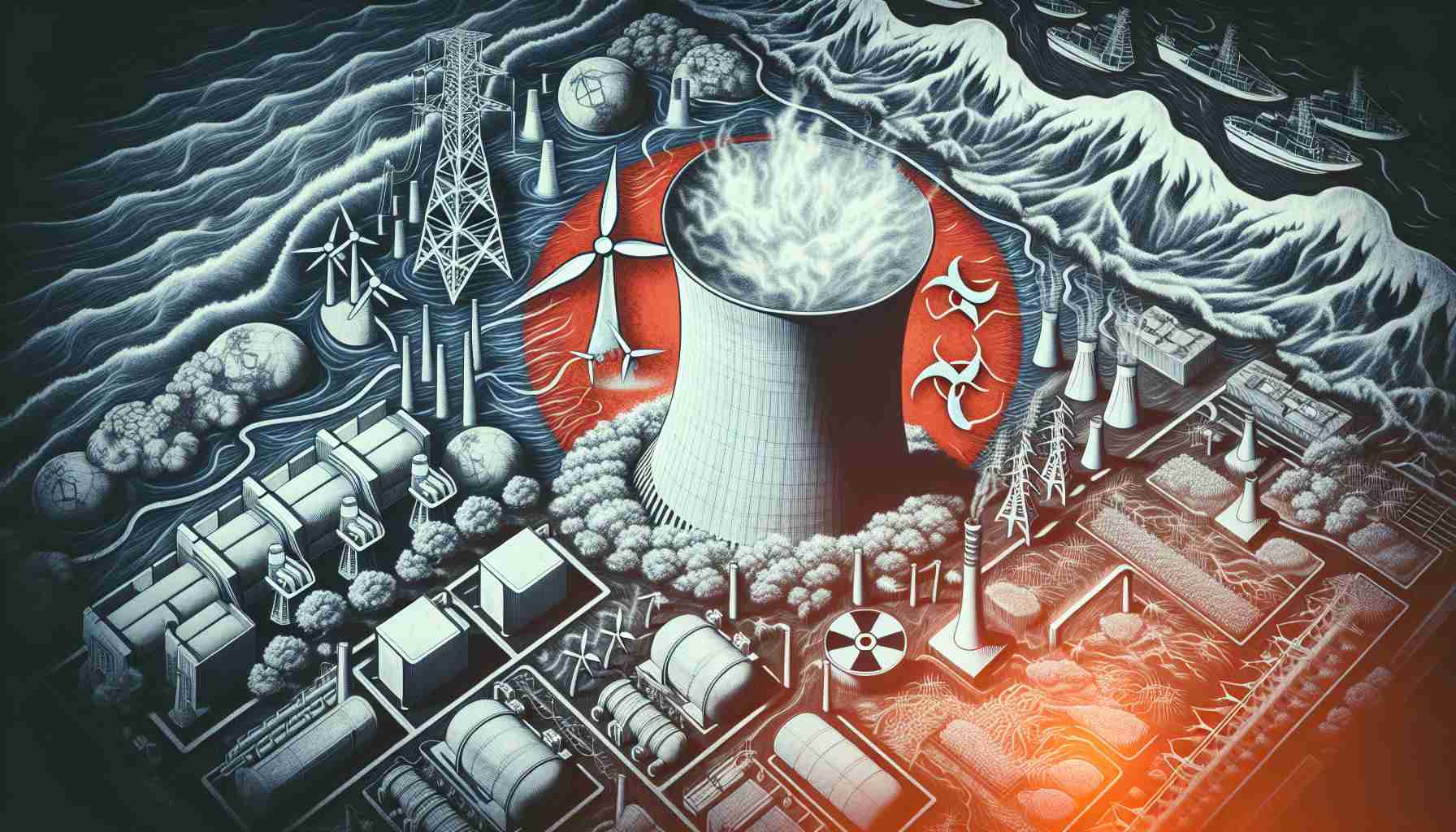- Maani-Ana Yikpotey’s transformation from experiencing drought in Ghana to studying nuclear energy in China highlights the urgent need for clean energy solutions.
- West Africa’s modernization efforts may depend on the adoption of nuclear technology to address energy shortages and climate change impacts.
- China’s rapid advancements in nuclear energy, including innovative small modular reactors, position it as a leader in the global energy landscape.
- The growing emphasis on clean energy and electric vehicles in China illustrates a shift towards an “electrostate” powered by sustainable sources.
- Yikpotey aims to leverage his knowledge to introduce nuclear energy initiatives in Ghana, offering potential solutions for the nation’s energy crises.
- The global focus on clean and reliable power is crucial for achieving long-term prosperity and stability, particularly in developing regions.
In a world grappling with energy shortages and climate change, Maani-Ana Yikpotey’s journey from drought-stricken Ghana to the cutting-edge nuclear research halls of Tsinghua University in China is nothing short of inspirational. Witnessing the devastating effects of climate shifts back home—where once fertile land turned barren and the price of corn skyrocketed—Yikpotey realized that West Africa’s modernization hinged on embracing nuclear energy.
After earning a degree in applied physics, the young visionary set his sights on mastering nuclear technology, initially feeling skeptical about China’s intentions. Yet, upon arrival, he was astounded by the clean, efficient energy solutions at China’s disposal, which contrasted sharply with his experiences in Ghana, where persistent blackouts were commonplace.
China’s nuclear industry has surged ahead, building advanced reactors faster than any other nation. Where the U.S. is still catching up, China is already deploying innovative small modular reactors and setting plans for ambitious projects like a massive dam in Tibet. As electric vehicles flood the streets and renewable energies flourish, the momentum indicates that China could soon reign as the world’s foremost “electrostate”—a superpower powered by electricity rather than fossil fuels.
For Yikpotey, this isn’t just a personal goal; it’s a chance to pave the way for clean energy in Ghana, bringing hope to his homeland where energy crises have stunted potential. With new partnerships forming and a push for nuclear growth in developing nations like Ghana, the global energy landscape may be on the brink of a significant shift. The stakes couldn’t be higher: clean, reliable power holds the key to prosperity and stability for millions.
The Future of Energy: Turning Hopes into Power
The New Nuclear Frontier: Insights and Trends
The narrative unfolding around nuclear energy is witnessing a transformation spurred by visionary individuals like Maani-Ana Yikpotey and the rapid advancements in technology and policy globally. As Yikpotey’s journey illustrates, nuclear energy not only addresses energy shortages but also emerges as a viable solution for combating climate change—a pressing issue for many nations, particularly in Africa.
Innovations in Nuclear Technology
Recent advancements have seen the development of small modular reactors (SMRs) that promise a variety of benefits, including:
– Scalability: SMRs can be built incrementally, allowing for more flexible energy deployment.
– Safety Features: New designs prioritize safety, using passive safety systems that require no active controls or operational intervention.
– Reduced Construction Time: Modular construction techniques can significantly shorten the timeline for reactor commissioning.
Market Forecasts and Trends
The global nuclear market is anticipated to grow due to increasing energy demands and sustainability efforts. The International Atomic Energy Agency (IAEA) projects:
– Increase in Nuclear Capacity: By 2030, the total installed nuclear capacity could rise by 20% globally, especially in Asia and Africa.
– Investment Boom: Countries are beginning to invest heavily in nuclear infrastructure, with growth concentrated in regions like Southeast Asia, Sub-Saharan Africa, and the Middle East.
Compatibility with Renewable Energy Sources
As the global energy mix evolves, nuclear energy will complement renewable sources like solar and wind. This hybrid approach offers several advantages:
– Stability: Nuclear energy provides a constant power output, which can stabilize grids that depend heavily on intermittent renewable sources.
– Lower Emissions: Together, nuclear and renewables can lead to significantly lower greenhouse gas emissions, making them a double-edged sword in the fight against climate change.
Limitations and Controversies
Despite its potential, nuclear energy faces challenges, including:
– Public Perception: Misconceptions and fear surrounding nuclear accidents hinder acceptance.
– Waste Management: Long-term solutions for radioactive waste disposal remain a contentious issue.
– High Initial Costs: The upfront investment for nuclear plants is substantial compared to some renewables, often deterring investments.
Addressing Common Questions
1. What role does nuclear energy play in combating climate change?
– Nuclear energy provides a low-carbon power source, significantly reducing reliance on fossil fuels. It operates consistently, unlike many renewable sources, making it a critical component of a balanced energy strategy.
2. How are countries in Africa approaching nuclear energy?
– African nations, grappling with energy deficits, are exploring nuclear as a part of their energy strategy. Countries like South Africa and Ghana have initiated discussions and partnerships to develop nuclear initiatives, recognizing its potential to drive economic growth and stability.
3. What advancements can we expect in nuclear energy technology over the next decade?
– Innovations like advanced reactor designs, AI optimizations for plant operations, and robust safety measures are on the horizon. These developments aim to increase the efficiency and safety of nuclear power generation, making it a more appealing option for energy-hungry nations.
For more detailed insights into nuclear innovations and their global impact, visit World Nuclear News.
In conclusion, Maani-Ana Yikpotey’s journey expresses a compelling vision for the future of clean energy. As nations embrace nuclear technology to secure energy stability, the world stands at a pivotal moment in the shift toward sustainable living.
The source of the article is from the blog lisboatv.pt












